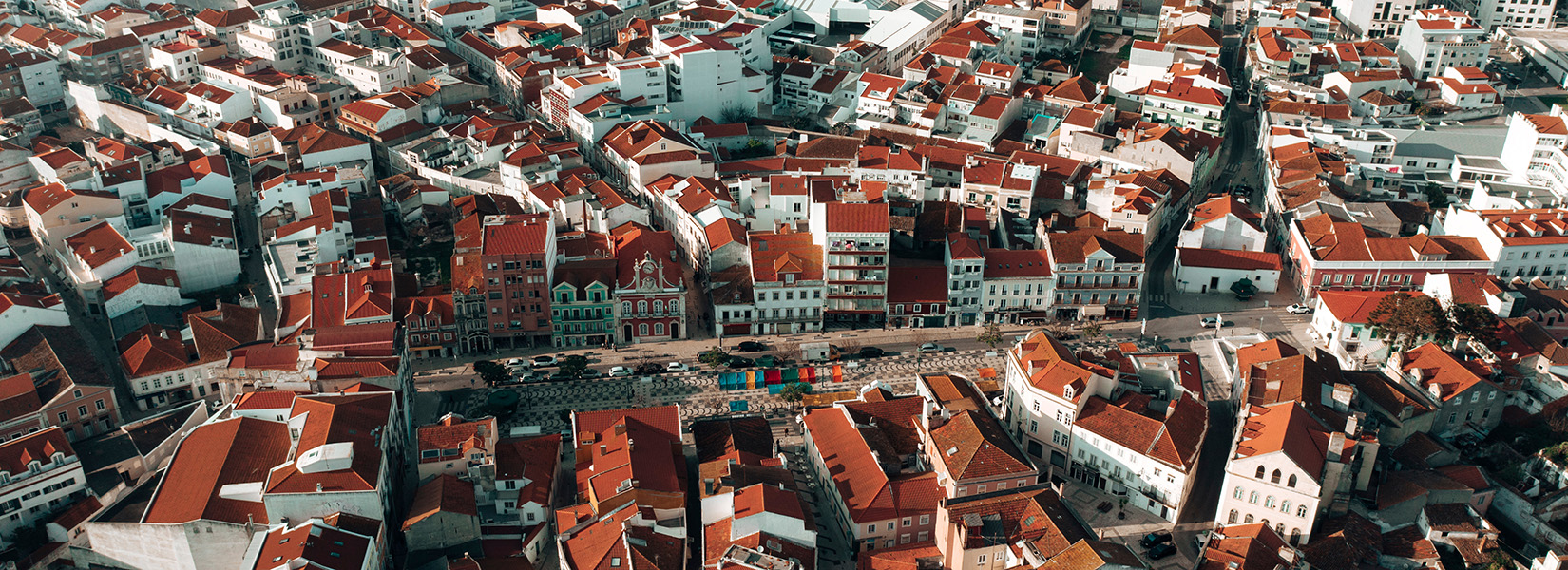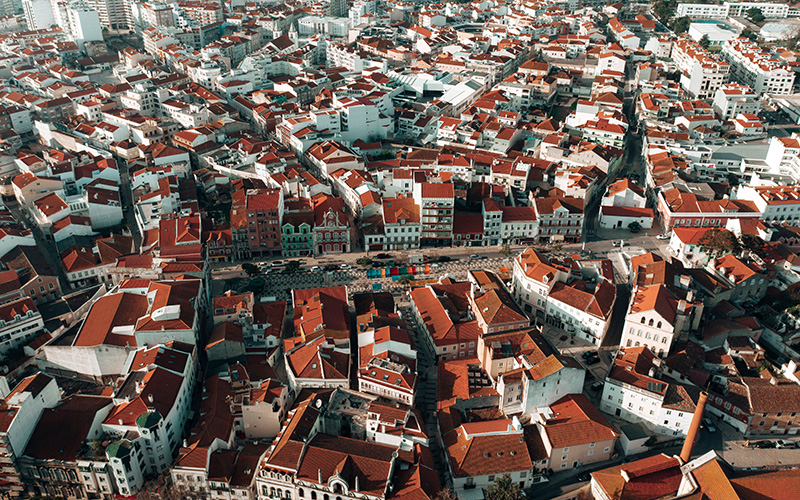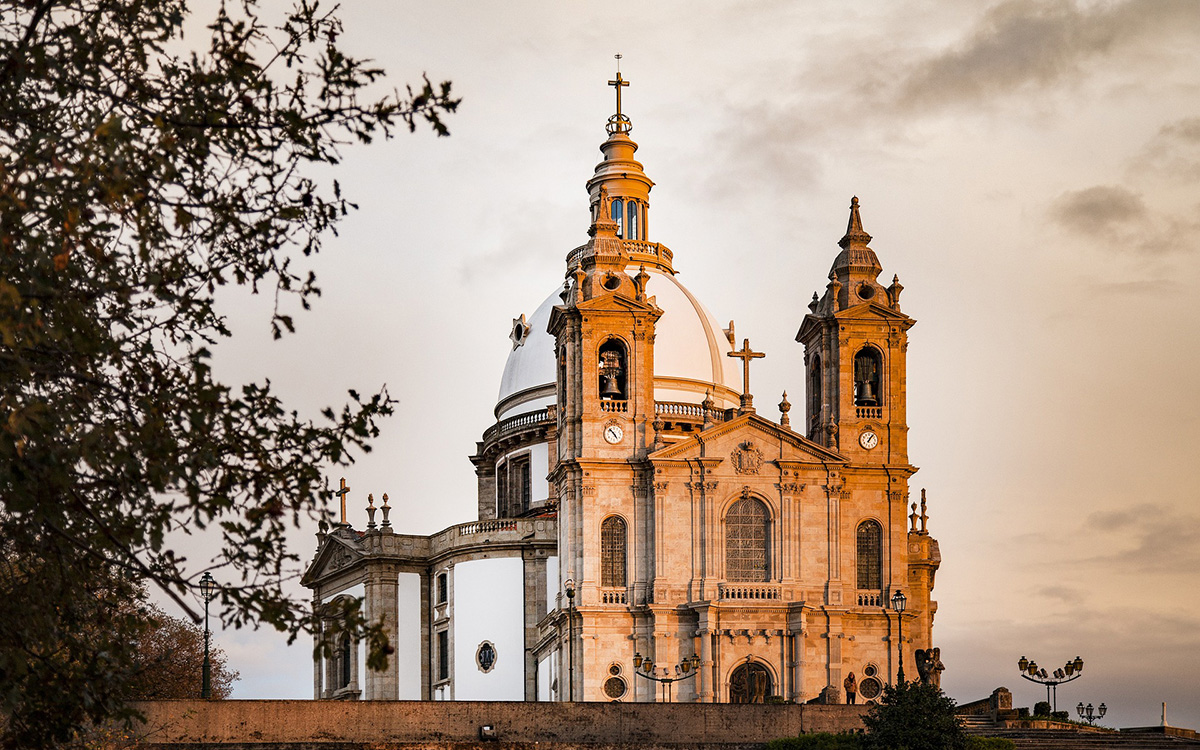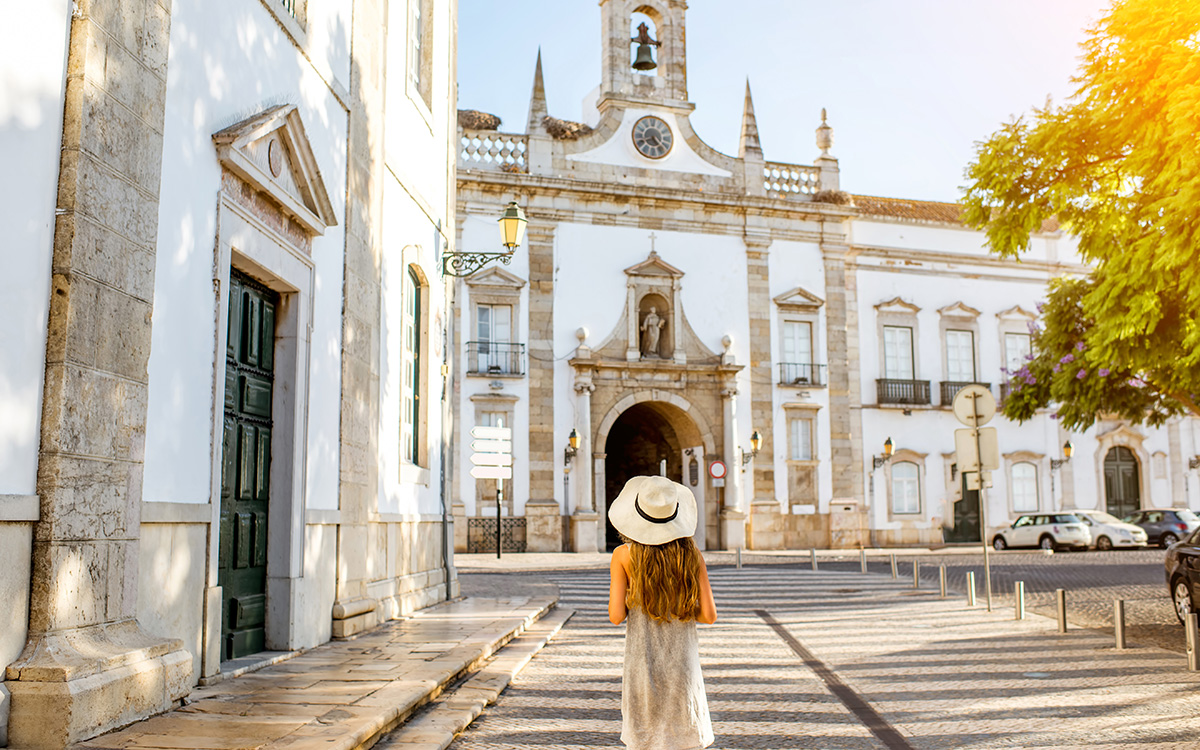

Renting a car in Portugal: Complete guide for 2026
Renting a car in Portugal whispers freedom, sunlit roads, sleepy villages, and wild coastlines—each mile a memory stitched with olive-scented wind.
Planning a trip through Portugal’s hills, coastlines, and hidden hamlets? Renting a car in Portugal might be your smartest move. From winding backroads to sun-drenched highways, having your wheels opens up a whole new layer of adventure. Here’s what you need to know before grabbing the keys.
This article contains affiliate links.

Should you rent a car in Portugal?
Planning your Portugal adventure? Deciding whether to rent a car in Portugal can be a game-changer—or a major headache. It all depends on your style. If you’re craving the freedom to wander into sleepy hilltop towns, hidden beaches, or vineyards off the tourist track, a rental might be your best bet. But if your trip is city-focused—Lisbon, Porto, Sintra—public transport could be smoother and less stressful.
Pros of renting a car in Portugal
- Complete flexibility to chase scenic detours and secret beaches on your terms
- Easy access to rural gems such as the Douro Valley or the Alentejo, where buses rarely reach
- Ideal for families or gear-heavy trips—no lugging luggage or struggling with schedules
Cons of renting a car in Portugal
- City chaos: narrow streets, tough parking, and peak-season traffic in Lisbon or Porto
- Hidden costs: tolls, fuel, insurance, young‑driver fees—all add up fast
- Extra hassle: unfamiliar road signs, managing insurance, and dealing with deposits can be stressful
In short, rent if you’re after off‑beat freedom and rural charm. Skip it if you’re sticking to well-connected cities.
Where to find a cheap car rental in Portugal?
Visitteo
Ever seen the same rental car priced five different ways online? That’s where Visitteo saves the day. It compares all major car rental providers in Portugal, side by side. Same car, same pickup, different prices—laid out so you can spot the best deal instantly. No guessing, no hopping between tabs. If you want to book smart without the hassle, Visitteo makes it simple.
Discover Cars
Discover Cars takes the stress out of car rental. It pulls real-time deals from big names and local gems, with filters that actually help—like fuel policy and deposit size. Prices can be low as $7–13/day, and free cancellation means flexibility. It’s reliable, easy to use, and perfect if you hate rental surprises.
EconomyBookings
Need a solid deal without breaking the bank? EconomyBookings lists options from trusted brands—local and global—with prices from around $10/day, even in high season. It’s great for variety, but keep an eye on the fine print, especially when it comes to insurance or mileage. Still, for budget-conscious travelers, it hits the sweet spot.
Requirements for renting a car in Portugal
Before hitting the road in Portugal, here’s exactly what you’ll need:
- Minimum age: You generally must be at least 21, though some companies rent at 19 if you’ve held your license for a year, with a young driver fee if you’re under 25.
- Driver’s license: Bring a valid license held for at least 12 months (EU licenses are fine; non-EU may require an International Driving Permit).
- International Driving Permit (IDP): Mandatory if your license uses non-Roman characters; recommended for all non-EU drivers.
- Passport or National ID: Required for verification at pickup.
- Credit card: Must be in the main driver’s name for deposit; debit cards are not accepted, and prepaid cards and cash are typically refused.
- Insurance: Basic third-party liability/CDW usually included; additional collision, theft, and zero-deductible options strongly recommended.
What type of car should I rent in Portugal?
Choosing the right car rental in Portugal depends on your route, your vibe, and how much road freedom you’re chasing.
Lisbon, Porto, Coimbra. Portugal’s cities weren’t built with modern traffic in mind. Narrow streets, tight parking, and one-way mazes make compact or economy cars the clear winners. You’ll glide through traffic instead of battling with bulky turns and cramped garages.
Alentejo, Douro Valley. Headed into the countryside? You’ll want comfort for those long, open stretches. A midsize sedan or hatchback gives you space for bags, wine finds, and a co-pilot or two—plus it handles hilly roads without a fuss.
Serra da Estrela, Peneda-Gerês. For mountainous areas, go with an SUV. The extra grip and power make climbing sharp curves or tackling uneven roads safer and smoother.
Algarve. Cruising along the coast? A convertible turns your drive into a sun-drenched adventure. It’s Portugal’s laid-back luxury on four wheels.
Make sure you get insurance coverage
Insurance can be a bit of a maze, but skipping it? That’s asking for stress. Here’s what’s typically included — and what you might want to add for peace of mind.
Rental prices usually include:
- Third-party liability insurance (TPL) – Covers damage you cause to others or their property.
- Theft protection (TP) – Covers the cost if the car is stolen, but not personal items inside.
- Collision damage waiver (CDW) – Covers damage to the rental car, but usually comes with a high excess (deductible).
Optional coverage (recommended):
- Super CDW or Zero Excess – Lowers or removes the excess entirely, so you’re not stuck with a big bill.
- Glass, tire, undercarriage, and roof coverage – These parts are often excluded from basic insurance and can be costly to repair.
Best airports in Portugal to start your road trip
Portugal has a way of pulling you in—rugged coastlines, winding village roads, island hideaways—and where you kick off your trip can shape everything that follows. Picking the right airport isn’t just about convenience; it sets the rhythm of your adventure.
Landing in Lisbon? Affordable car rental at Lisbon Airport puts you right in the middle of it all. Spend your mornings wandering old Alfama streets, then hit the road to explore coastal towns like Cascais or head south to the Algarve with ease.
If you’re flying into Porto, you’re in for a treat. Porto Airport rental cars make it easy to cruise through the Douro Valley, swing by medieval towns, or chase the Atlantic up north.
Planning on sun, surf, and endless ocean views? Faro Airport car hire options are your gateway to Portugal’s iconic southern coast—think cliffs, coves, and roads made for slow scenic drives.
Over on Madeira, the real beauty is off the beaten path. With Funchal Airport rental car services, you’ve got the freedom to chase views, explore forested peaks, or stumble onto a mountain village that’s not in your guidebook.
For something wilder, Ponta Delgada Airport car rentals are your ticket to São Miguel’s surreal landscapes—crater lakes, steaming hot springs, and black-sand beaches.
And if your compass points toward the Azores’ quieter side, Terceira Island Airport car hire is your starting line for a road trip packed with lava tubes, sleepy coastal towns, and wide-open island skies.
Top tips for renting a car in Portugal
Book early. Car rentals in Portugal get scooped up quickly, especially in summer or around holidays. If you want a good deal and your pick of cars, don’t wait until the last minute.
Go small. Trust us—Portugal’s historic city centers weren’t built with SUVs in mind. In places like Lisbon or Porto, a compact car will save you major stress when squeezing through narrow streets or snagging a parking spot.
Stick shift is the norm. Most rental cars come with a manual transmission. If you need an automatic, book it ahead of time—they’re limited and cost more.
Bring a credit card. Rental companies typically require one for the deposit, and it has to be in the main driver’s name. Debit cards? Usually a no-go.
Watch out for tolls. Many highways use electronic tolls that don’t have cash booths. Ask your rental company about a transponder so you’re not stuck sorting bills later.
Inspect everything. Before you hit the road, check for scratches or dings and get them documented. Snap a few photos—better safe than sorry.
Check the fuel policy. “Full to full” is usually the most budget-friendly option. Skip prepaid fuel unless you’re returning it bone-dry.
Know the local rules. Speeding fines are no joke, and using your phone while driving is heavily penalized. Play it smart—it’s not worth the risk.
Best places to explore in Portugal by car
Douro Valley. If there’s one drive in Portugal that feels like a dream, it’s this one. Twisting roads hug the river as you pass endless vineyards, charming villages, and scenic lookout points. With a rental car, you’re free to stop wherever the view demands it—and trust us, that’ll be often.
Sintra. Just outside Lisbon, Sintra is packed with colorful palaces, secret gardens, and misty forest trails. It’s a place best explored on your own terms. Having a car means skipping the crowds and timing your visit around the golden light, perfect for those Instagram-worthy shots.
Alentejo. Slow down and enjoy the rhythm of Portugal’s countryside. Rolling hills, olive groves, and quiet towns like Évora make Alentejo a peaceful escape from the tourist trail. It’s not about rushing—it’s about discovering.
Costa Vicentina. Rugged cliffs, empty beaches, and sleepy surf towns—this slice of the southwest coast is made for road trippers. It’s raw, untamed, and breathtaking at every turn.
Serra da Estrela. Want to see Portugal’s alpine side? This mountain range delivers snowy peaks in winter, wildflowers in spring, and winding roads year-round. A car is essential here—public transport won’t get you close.
The Algarve. Yes, it’s famous—and yes, it’s worth the hype. With a rental car, the Algarve becomes a playground of secret beaches, dramatic cliffs, and sunset-perfect viewpoints.
Is it easy to drive in Portugal?
So, is it easy to drive in Portugal? Mostly—yes. The highways are in great shape, signs are clear (and usually in both Portuguese and English), and the scenery? Let’s just say you won’t mind a few detours. That said, driving in cities like Lisbon or Porto can test your patience. Narrow streets, tricky parking, and drivers who like to zip around corners keep things… interesting.
Roundabouts are everywhere and not always intuitive, especially if you’re unfamiliar with local driving habits. Out in the countryside, roads can be narrow and lack shoulders, but traffic’s usually light and the views are worth it.
Toll roads are common, so make sure your rental car comes with a transponder. And don’t mess around with speed limits—Portugal’s traffic cameras don’t blink. Overall? If you’re confident behind the wheel, you’ll be just fine—and probably smiling.
When to book a car rental in Portugal?
High season vs low season rates
Car rental prices in Portugal? They’re all about timing. If you’re heading there in summer—think July or August—be ready to pay more. It’s high season, and demand shoots up fast. Even the most basic rental can feel overpriced, and availability gets tight. But visit during the quieter months, like November to March, and you’ll likely score better rates, more vehicle choices, and way less competition at the counter. Spring and fall are the sweet spot—great weather, reasonable prices, and fewer tourists clogging the roads or the rental lots.
Best time to book (how far in advance)
Want the best deal on a rental car in Portugal? Don’t leave it to chance. Booking about 4 to 8 weeks in advance usually gives you the best shot at good prices and a decent selection—especially if you’re looking for an automatic or planning a road trip with extra luggage. If you’re traveling during the high season, it’s worth locking something in even earlier. The later you wait, the steeper the price tag—and the slimmer the pickings.
FAQs
You’ll need a few basics: a valid driver’s license, a passport or national ID, and a credit card in the main driver’s name. Most rental companies also require that you’ve held your license for at least a year. If your license isn’t from the EU or doesn’t use Roman characters, bringing an International Driving Permit is either required or strongly recommended. Better safe than stuck at the counter.
Technically, yes—but it’s the bare minimum. Rentals usually include third-party liability, theft protection, and a collision damage waiver (CDW). That sounds great, until you realize the CDW comes with a high excess, meaning you’ll still pay out of pocket if something goes wrong. That’s where optional coverage steps in.
Most companies allow travel to neighboring countries, especially Spain. Just make sure to mention your plans when booking, because cross-border trips usually come with extra fees or insurance requirements. If you’re thinking of heading farther—France, Italy, etc.—you’ll want to double-check restrictions before hitting the road.
Not everyone does. If your license is from the EU or written in Roman characters—like English, Spanish, or French—you’re good to go. But if it’s in another script, you’ll need an International Driving Permit. Even when it’s not legally required, having one can save time and questions at pick-up.
Yes, one-way rentals are common and pretty convenient. You can start in Lisbon and drop off in Porto, Faro, or even somewhere smaller. Just keep in mind, there’s usually a one-way fee involved. Booking this in advance is cheaper than asking for it on the spot.
They’re pretty standard but worth memorizing. In cities, it’s 50 km/h. On rural roads, it’s usually 90 km/h. Highways top out at 120 km/h. Portugal has plenty of speed cameras—some hidden, some obvious—and fines can sneak up on you. Stick to the signs, even if locals seem to speed past you.
Yes, generally very safe. The roads are in good condition, signs are clear, and drivers are mostly courteous. Still, urban areas like Lisbon or Porto can feel chaotic—narrow streets, fast-moving traffic, and aggressive parking habits. Out in the countryside, it’s a whole different vibe—quieter, scenic, and far more relaxed.
Manual transmissions are the standard—automatics are limited and cost more. You’ll need a credit card for the deposit, and most rental companies don’t accept debit or prepaid cards. Fuel is pricey compared to other countries, and toll roads are everywhere. Also, make sure to inspect the car before driving off and take a few photos—just in case.
It’s not required, but it’s worth considering. Basic coverage leaves you responsible for a large excess if anything happens. Adding Super CDW or full coverage reduces or eliminates that risk and often includes protection for tires, windows, and the undercarriage—things basic insurance usually skips.
It can be—depending on where you’re going. Portugal is expanding its EV charging network, especially in bigger cities and along main highways. But in rural areas or on islands, charging stations can be few and far between. If you’re planning longer drives, a traditional car might be a less stressful choice.
Serious car theft is rare, but petty theft can happen—especially in tourist hotspots. Don’t leave anything visible in the car, and try to park in well-lit, secure areas when possible. Most rentals include theft protection, but common sense goes a long way in keeping your trip hassle-free.
Yes—Portugal has both manual and electronic toll roads. The electronic ones don’t take cash or cards, which can trip up unprepared drivers. Most rental cars come equipped with a toll transponder, which automatically logs tolls and bills you later. Always double-check with your rental provider so there are no surprises.


